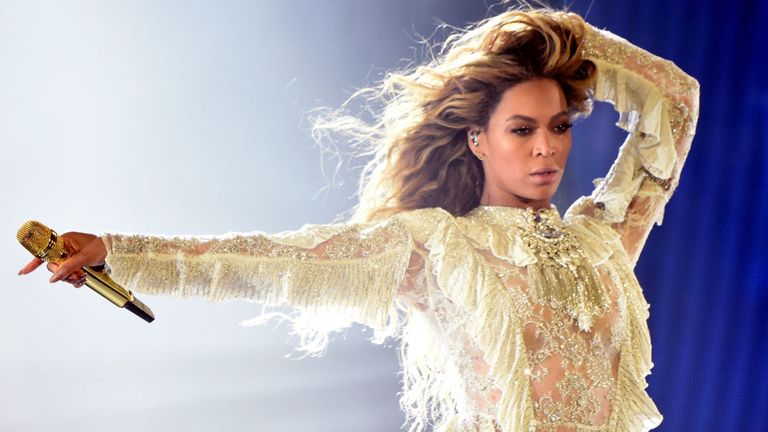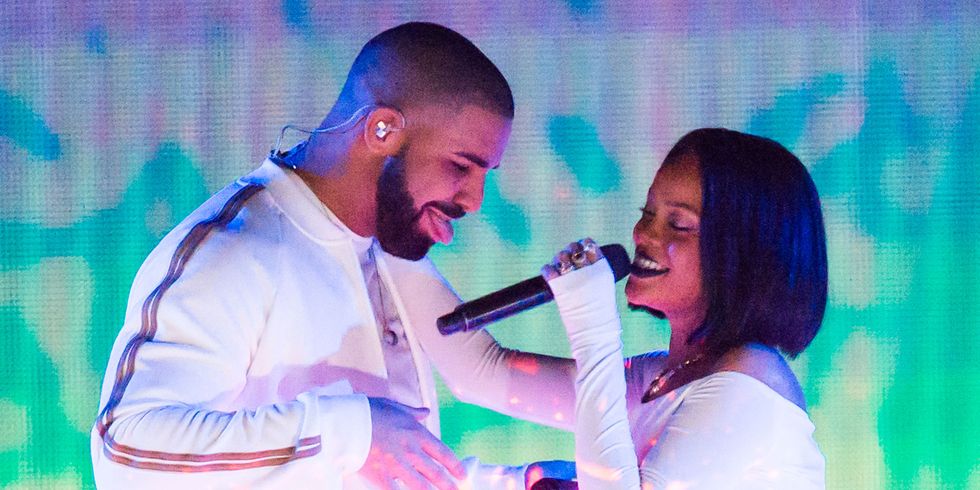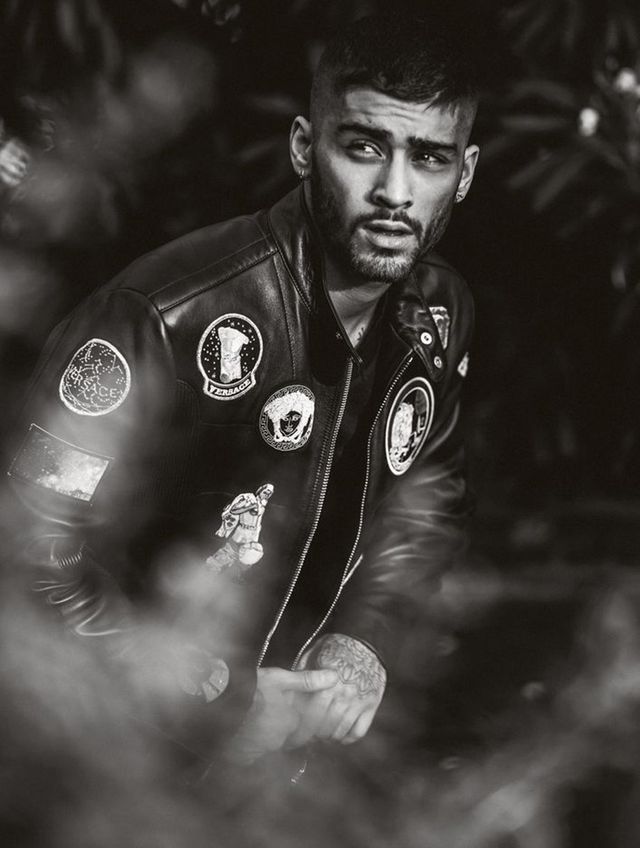At around 9.45pm on 10 January, this year started as it meant to go on for me.
I was pulling an all-weekender reporting on the death of Hollywood rock'n'roll legend, Motörhead frontman Lemmy, whose funeral took place that Sunday in Los Angeles where I live.
Fresh from finishing my article, hunger pangs struck so I went to my cornershop for milk and Cheerios (stop judging me). By the time I got home, David Bowie was dead. I plonked myself back at my desk, put on his album Station To Station and spent the next few hours paralysed, gorging on the thoughts spilling out of peers' brains via social media as the world mourned together.
The milk never made it to the fridge. As the news spread like wildfire across every social media platform, Bowie fans worldwide united in picking apart the lyrics of the newly released Blackstar album, particularly the song Lazarus in which Bowie appears to narrate his own death, as though he knew all along. 'Look up here, I'm in heaven,' he sang. 'I've got scars that can't be seen / I've got drama, can't be stolen / Everybody knows me now…'
If 2016 had a soundtrack, it would feature a frantic beat and play at a tinnitus-inducing volume.
The debate surrounding music now is louder, less predictable and more meaningful than it has been in decades. Once again, it's dominating the cultural conversation, both holding up a mirror to society and helping to articulate how we see the world.
Our engagement with music events would suggest that we're living in a renaissance period for pop.
If the cultural essays and major happenings continue at this rate, we'll have lost our voices before Christmas and I'll have spent all my money on tour merchandise. Between Justin Bieber's Purpose World Tour, Rihanna's Anti and Beyoncé's Formation, I'm in dire need of a tax rebate (can I claim my Rihanna 'Most likely to not give a f**k' hat back as a 'work' expense?).
At long last, the world is taking pop music seriously again and frankly, I'm thrilled about it.
This was the year that music became a discussion, which runs much deeper than just tweeting the lemon emoji to signify you've purchased a copy of an album that's occupied as much internet space as the run up to the US election. No less than 1.8 million of us tweeted about Beyoncé's visual album Lemonade during its HBO premiere, according to Twitter UK. That's half a million more tweets than followed the release of Adele's Hello in October 2015, which spawned 1.3m frenzied 140-character missives over five days*.
The front pages of broadsheets have been hijacked by the deaths of icons; columns have intellectualised era-defining albums from the likes of Radiohead and UK grime star Skepta; consumers have grappled with their preferred streaming services; pop songs have been liberated from the anodyne subject matter of yore (boy meets girl, girl meets boy, the end) and embraced modern life following years of economic recession and social uprising; and stars such as Kesha and Against Me! transgender frontwoman Laura Jane Grace are fighting for their voice.
In 2016, a quarter of the most popular Instagram accounts are those of music stars. The knock-on effect is that I receive more messages from Miley Cyrus every day than WhatsApps from my best mate. Music is happening at us, on so many levels, and the wider public is being swept up in it, not just young girls and music journalists.
When you write about music there are four scenarios that justify emergency protocol: a band breaks up or loses a member (hello Zayn Malik's post-One Direction album, Mind Of Mine), a band reforms (The Stone Roses), someone releases an unannounced track (everyone this year), or someone dies (it might be a good idea to cryogenically freeze Kate Bush, Cher, Björk and Paul McCartney pronto). The music world has been at Defcon level 2 these past eight months.
After years of predictability in pop and the monopolisation of every platform by Taylor Swift's 1989 album campaign, you'd forgive the non-music obsessive for considering that the playing field was positively flat. As Swift faded from view and Adele out-smashed herself, there was room for a glut of releases across the spectrum of genres.
With the shocking departure of Prince in April, the collective sense that the cosmos was sending some sort of a message was palpable, no matter how irrational, but it had a galvanising effect. 'The tragic losses have made people realign with legendary albums and reconnect with current music,' says Anna Meacham, who still works on Prince's publicity.
A cynic may consider the public hysteria surrounding these deaths as panic about the impending loss of our remaining irreplaceable icons. Perhaps these deaths have provoked today's stars to aim higher › with their creative vision. Meacham, who also masterminds press for Zayn, Adele and Beyoncé, agrees that making music isn't enough anymore. Artists now create a universe around themselves; you only have to look at Kanye unveiling his album The Life Of Pablo at Madison Square Garden in February with a fashion show to realise that a simple on-sale date won't do.
Usually the most anticipated albums are released in the weeks leading up to Christmas. This year's biggest records were landing just ahead of summer festivals and tours, and all at the same time; the explosion of the festival market means artists want their albums out earlier so the crowd can sing along. Rihanna put tour tickets on sale without the album, then released Anti just in time.
Let's pour one out for all the critics and broadcasters who suffered a mild breakdown in April/May of this year when Lemonade kickstarted 13 days of madness, as surprise albums from Drake, Radiohead, James Blake and Chance The Rapper were all dropped one by one.
Fast forward to August when Frank Ocean released a surprise visual album, Endless, and subsequent follow-up, Blonde. It forced the importance of albums again and stuck up two punk fingers at the iPod shuffle culture. The lyrics generated stories of their own, too: Drake, who's become an expert at creating a meme out of his every move, used the restaurant chain Cheesecake Factory as the setting for a lovers' tiff on his track, Child's Play: 'Why you gotta fight with me at Cheesecake? / You know I love to go there.'
The long-awaited 'moment' also came for UK grime hero Skepta, whose album Konnichiwa landed six days before Chance's. 'The feds wanna shift man /Wanna put me in a van / Wanna strip a man' go the lyrics of Crime Riddim, announcing himself as Britain's most politicised bard, calling the authorities out on stop-and-search laws and racial profiling.
These artists are all individuals in their own right, but together they share the key to this reinvigorated dynamism via their grappling with greater questions of identity. Journalist and punk frontwoman of Perfect Pussy Meredith Graves says we've become more engaged with whether our pop stars are 'good people. Especially in such a contentious [US] election year. When it comes to artists who are capitalising on a perceived authenticity, they should be transparent and give their fans the choice.'
Artifice is no longer welcome in 2016. As Zayn Malik told ELLE this year, 'Authenticity is the key to being a successful artist, and to being iconic.' Our relationship with music is more intimate now, too; technology allows us to have music with us wherever we go. It's creating feverish levels of anticipation around forthcoming releases.
That, combined with the fact that music is meeting us where we are in our lives (socially, politically and personally), has sparked vital interest. We seek to connect with artists who are using their platforms to talk about the things that affect us daily because they're in our lives daily. Jessica Hopper, Editorial Director at MTV News, recalls being in the New York courtroom when Kesha's appeal was thrown out, an ongoing saga with recent news that she's since dropped one of the lawsuits against producer Dr Luke. 'Kesha is taking on the status quo of her industry to fight for her self expression; it's part of the continuous conversation we're having about the way women are taken advantage of everywhere.'
It reminds me of seeing Beyoncé close a show in September in LA with Freedom, her most politically charged song to date. 'I'm a wave through your shallow love,' she hollered, stomping through puddles of water, kicking away frivolities of the past. With a final cry of 'Freedom, cut me loose […] cause I need freedom too!' she threw down the gauntlet for a year of uninhibited artistic expression. And as art imitates life, so too life begins to take art seriously again.















